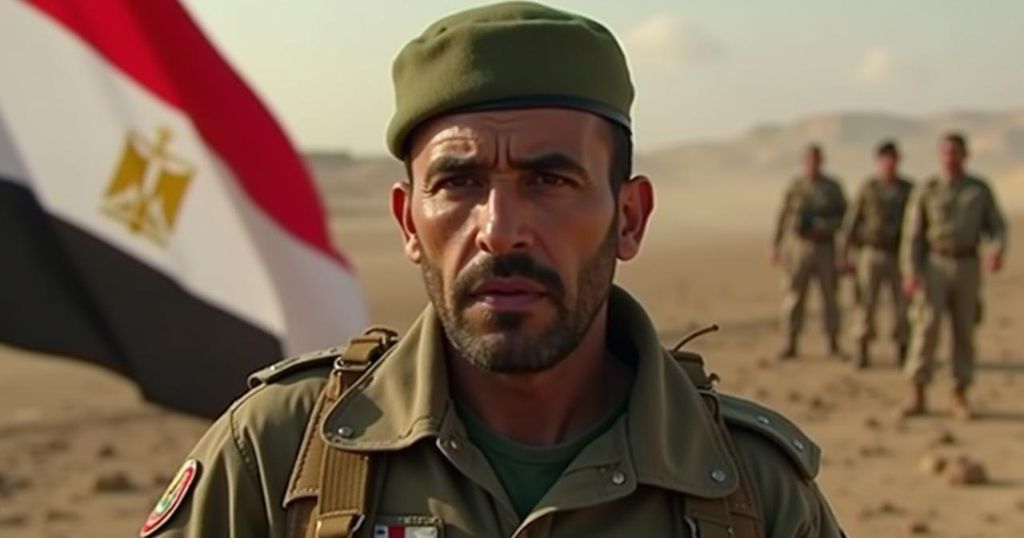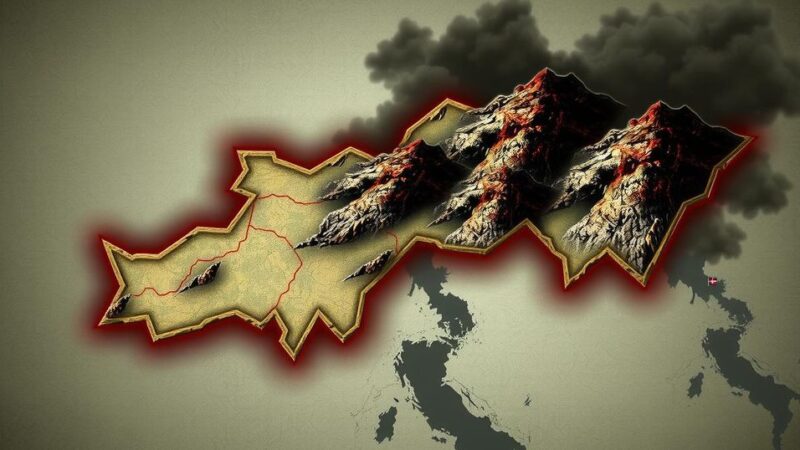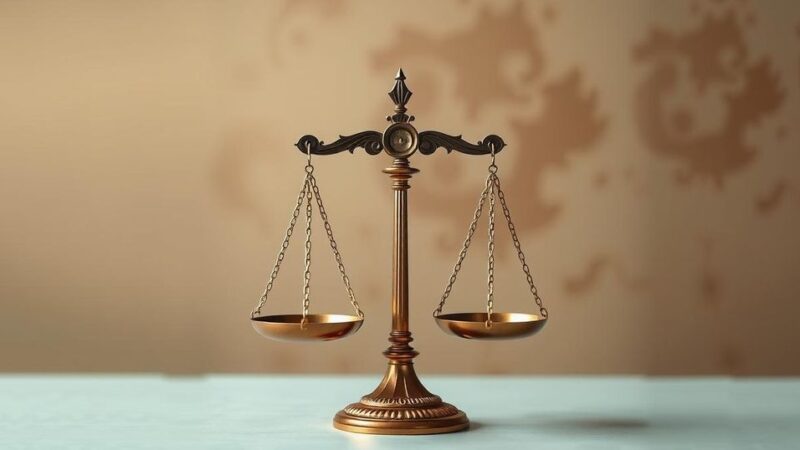Sudan’s RSF leader, Hemeti, has accused Egypt of conducting airstrikes against his forces while Egypt denies these claims. Hemeti alleges foreign intervention in the conflict, suggesting support for the Sudanese army, and expresses concern over shifting power dynamics. The conflict has resulted in a severe humanitarian crisis affecting millions. The ongoing violence shows no immediate signs of abatement, complicating the recovery and peace processes in Sudan.
The leader of Sudan’s Rapid Support Forces (RSF), Mohamed Hamdan Dagalo, commonly referred to as Hemeti, has publicly accused Egypt of conducting airstrikes against his troops near Khartoum. In a video statement, Hemeti alleged that his forces in the Jebel Moya region were “treacherously attacked” by Egyptian aircraft, asserting that despite previously withholding their allegations regarding Egyptian air involvement, the recent escalation necessitated a response. Hemeti accused Cairo of training the Sudanese army and supplying it with drones amidst the ongoing civil conflict between the RSF and the Sudanese Armed Forces (SAF) that has persisted since April 2023. In response to these grave allegations, the Egyptian foreign ministry categorically denied any involvement, urging the international community to investigate Hemeti’s claims thoroughly. Analysts suggest that Hemeti’s accusations reflect a shift in the conflict’s dynamics, raising concerns about foreign intervention supporting the SAF. Reports of Egyptian military support for the Sudanese army have circulated during the conflict; however, there are indications that Egypt has curtailed its direct involvement as the outcome of the conflict remains uncertain. Hemeti further alleged that recently dropped bombs by Egyptian aircraft were manufactured in the United States, insinuating complicity on the part of the US government, and suggested that Iranian forces were participating in the conflict alongside the army. His claims come in the wake of US sanctions imposed on his brother, Algoney Hamdan Daglo Musa, for his role in arms procurement for the RSF. Hemeti also indicated that multiple countries were indirectly supporting the army against the RSF. Notably, he expressed defiance despite territorial losses, asserting that his forces are reorganizing and maintaining their resolve, even in the face of severe military disadvantage. Meanwhile, reports indicate that the ongoing conflict has led to catastrophic humanitarian conditions in Sudan, with millions displaced and numerous regions at risk of famine. Efforts for a ceasefire in the conflict have yielded little progress, reinforcing the view that a political solution remains distant. The RSF continues to face allegations of egregious human rights violations, contributing to the ongoing crisis in the region. Overall, the situation remains precarious, with no immediate resolution in sight for the conflict in Sudan.
The ongoing conflict in Sudan has its roots in a power struggle between the Sudanese Armed Forces (SAF), which is allied with Egypt, and the Rapid Support Forces (RSF), led by Hemeti. This conflict escalated in April 2023. Amidst the fighting, multiple reports have indicated that Egypt has provided military support to the SAF, which has raised tensions between Egypt and Hemeti’s RSF. The humanitarian crisis stemming from this conflict is dire, with millions displaced and significant food insecurity affecting the population. International diplomatic efforts have attempted to facilitate a ceasefire, but thus far have been largely unsuccessful, adding to fears of escalating violence and human rights abuses.
In summary, the accusations made by Hemeti against Egypt represent a significant escalation in rhetoric amidst a protracted and violent conflict in Sudan. While Egypt has denied these allegations, the dynamics of foreign involvement in the conflict, particularly the support for the SAF, suggest a complicated geopolitical landscape. The humanitarian crisis continues to deepen, and without a resolution, both the conflict and its devastating effects on the civilian population are likely to persist for the foreseeable future.
Original Source: www.middleeasteye.net






